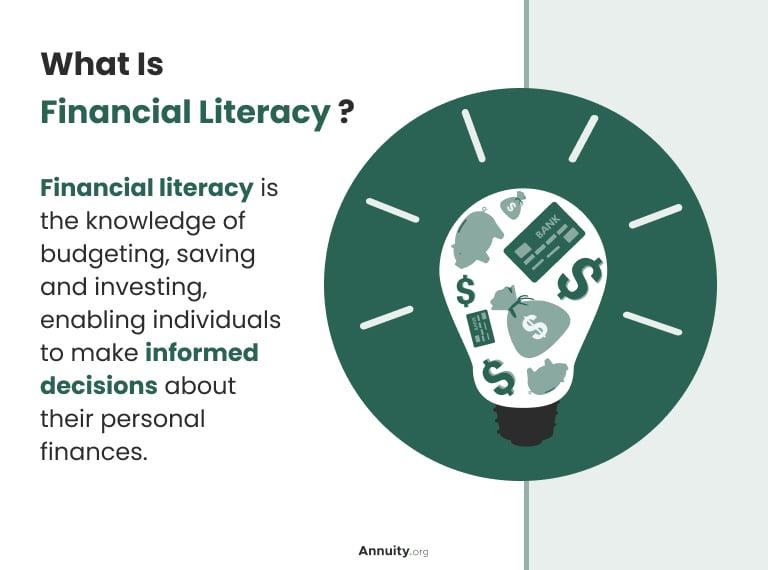In a world brimming with uncertainties and aspirations, the invisible threads that weave through our financial choices often determine the fabric of our well-being. Imagine a garden where each seed represents an opportunity—a chance to flourish or falter based on the nutrients provided. Financial literacy, in this metaphor, is the nurturing hand that guides these seeds to bloom. Beyond the balance sheets and ledgers, it is an art and science integral to achieving holistic wellness. Through the lens of thoughtful money management, we embark on a journey that transcends the mere accumulation of wealth, revealing the profound effects on our mental, emotional, and even physical health. This article delves into the compelling interplay between financial literacy and overall wellness, uncovering how informed choices can cultivate a life of stability, opportunity, and peace.
Understanding the Link Between Financial Literacy and Wellness
Acquiring financial literacy is akin to learning a new language—one that empowers individuals to navigate the complexities of economic landscapes confidently. This mastery goes beyond just budgeting or saving; it encompasses understanding investments, debt management, and the nuances of personal finance that contribute to overall well-being. The synergy between financial knowledge and mental health cannot be overstated. Less financial stress significantly lowers anxiety levels, fostering a sense of security and peace of mind. Being well-versed in financial matters enables informed decision-making, which is crucial in maintaining a balanced, healthy lifestyle. Consider these essential components:
- Budgeting: Creating and sticking to a budget helps prevent overspending and promotes saving.
- Debt Management: Understanding how to manage and pay off debt efficiently reduces financial strain.
- Investing: Knowledge in investments can lead to wealth accumulation and financial independence.
- Emergency Funds: Having a safety net for unexpected expenses boosts confidence and reduces anxiety.
To underline the significance of financial literacy in enhancing wellness, let’s look at a comparison table showcasing benefits of financial literacy:
| Aspect | Benefit |
|---|---|
| Stress Reduction | Lowered anxiety and financial worries |
| Better Health | Reduced stress-related health issues |
| Confidence | Increased ability to make informed decisions |
| Stability | Long-term financial security |

The Impact of Poor Financial Management on Mental Health
Poor management of finances can have a significant toll on mental health, leading to feelings of stress, anxiety, and even depression. The constant worry over unpaid bills, accumulating debt, and financial instability can create a persistent sense of dread. This emotional burden can also impede daily functioning, affecting decision-making, concentration, and sleep patterns. Financial stress can manifest in various symptoms such as headaches, fatigue, and appetite changes, ultimately reducing the overall quality of life.
Moreover, the emotional strain from financial mismanagement does not only affect the individual but also has a ripple effect on relationships. Conflict over money is a common source of tension among couples and families, leading to misunderstandings and disputes. Negative financial behaviors, such as impulsive spending, can exacerbate the situation, making it difficult to break the cycle of stress. Effective financial management can mitigate these issues, fostering a sense of control and security. Key strategies include:
- Budgeting: Creating a realistic budget to track income and expenses.
- Debt Management: Prioritizing high-interest debts to reduce financial burdens.
- Savings: Building an emergency fund to manage unexpected expenses.
- Education: Continuous learning about personal finance to make informed decisions.
| Strategy | Benefit |
|---|---|
| Budgeting | Improves financial discipline |
| Debt Management | Reduces interest stress |
| Savings | Provides financial security |
| Education | Enhances decision-making |

Tools and Resources for Improving Financial Literacy
Navigating the world of finance can feel like a daunting task, but with the right tools and resources, gaining a strong footing is far more attainable. Various mobile applications and online platforms now make understanding financial principles more accessible than ever. Consider using user-friendly apps like Mint and YNAB (You Need A Budget) for budgeting, or Robinhood and Acorns to get started with investing. Online resources such as Investopedia and Khan Academy offer comprehensive guides and courses that cover basic to advanced financial concepts.
Here are some go-to resources to enhance your financial literacy:
- Books: “Rich Dad Poor Dad” by Robert Kiyosaki, “The Total Money Makeover” by Dave Ramsey
- Websites: NerdWallet, SmartAsset
- Podcasts: “Planet Money”, “The Dave Ramsey Show”
- Courses: Coursera’s Financial Markets by Yale, Udemy’s Personal Finance 101
Having a diverse toolkit at your disposal can help demystify personal finance, enabling you to make smarter financial decisions with confidence.
| Resource | Type | Description |
|---|---|---|
| Khan Academy | Online Courses | Free educational courses covering a variety of financial topics. |
| Mint | App | Helps with budgeting and tracking expenses. |
| Investopedia | Website | In-depth articles and tutorials on financial concepts. |

Integrating Financial Wellness into Overall Wellness Strategies
Financial wellness is an essential pillar of overall well-being, interwoven with mental, physical, and emotional health. It’s not just about having a stable income but also about fostering a sense of security and confidence in one’s financial decisions. This involves making informed choices, understanding the value of money, and planning for the future. Integrating financial wellness into broader wellness strategies equips individuals with tools to manage stress, reduce anxiety, and improve their quality of life. Financial literacy empowers people to take control of their financial journey, aligning their fiscal habits with their life goals. Ignoring this crucial aspect can lead to a cascade of negative effects, undermining the overall wellness efforts in other areas such as health and relationships.
Implementing comprehensive wellness strategies should include components that specifically address financial literacy, such as:
- Budgeting Education: Teaching how to create and stick to a budget
- Savings Plans: Establishing emergency funds and long-term savings goals
- Debt Management: Understanding and managing debt effectively
- Investing Basics: Introduction to investment options for growing wealth
Organizations can enhance their wellness programs by including financial wellness workshops, resources, and personalized financial coaching. These programs help employees and members develop a more robust understanding of their financial situation and improve their ability to make proactive decisions regarding their finances. This integration not only supports individual growth but also contributes to a more resilient, productive, and engaged community.
| Component | Benefit |
|---|---|
| Budgeting Education | Empowers with financial planning skills |
| Savings Plans | Encourages long-term security |
| Debt Management | Reduces financial stress |
| Investing Basics | Builds wealth over time |
Q&A
Q: What is financial literacy and why is it important?
A: Financial literacy refers to the ability to understand and effectively manage one’s finances. It is important because it empowers individuals to make informed decisions about their money, leading to financial stability and security.
Q: How does financial literacy impact overall wellness?
A: Financial literacy plays a crucial role in overall wellness by reducing financial stress, promoting healthy spending habits, and enabling individuals to plan for their future financial goals.
Q: What are some practical tips for improving financial literacy?
A: Some practical tips for improving financial literacy include budgeting, saving for emergencies, investing wisely, and seeking out financial education resources such as workshops and seminars.
Q: Can improving financial literacy help achieve long-term financial success?
A: Yes, improving financial literacy can significantly increase the likelihood of achieving long-term financial success by helping individuals make sound financial decisions, avoid debt, and build wealth over time.
Q: How can employers promote financial literacy in the workplace?
A: Employers can promote financial literacy in the workplace by offering financial wellness programs, providing access to financial education resources, and incentivizing employees to save and invest in their financial future.
Key Takeaways
the path to achieving wellness is paved with financial literacy. By understanding how to manage and make informed decisions about our finances, we can create a solid foundation for a healthier, happier life. Remember, taking control of your financial well-being is not just about the numbers in your bank account, but about the overall quality of your life. So, let’s embark on this journey towards financial wellness together, and reap the many benefits it can bring to our physical, mental, and emotional well-being. Stay wise, stay financially literate, and stay well.


